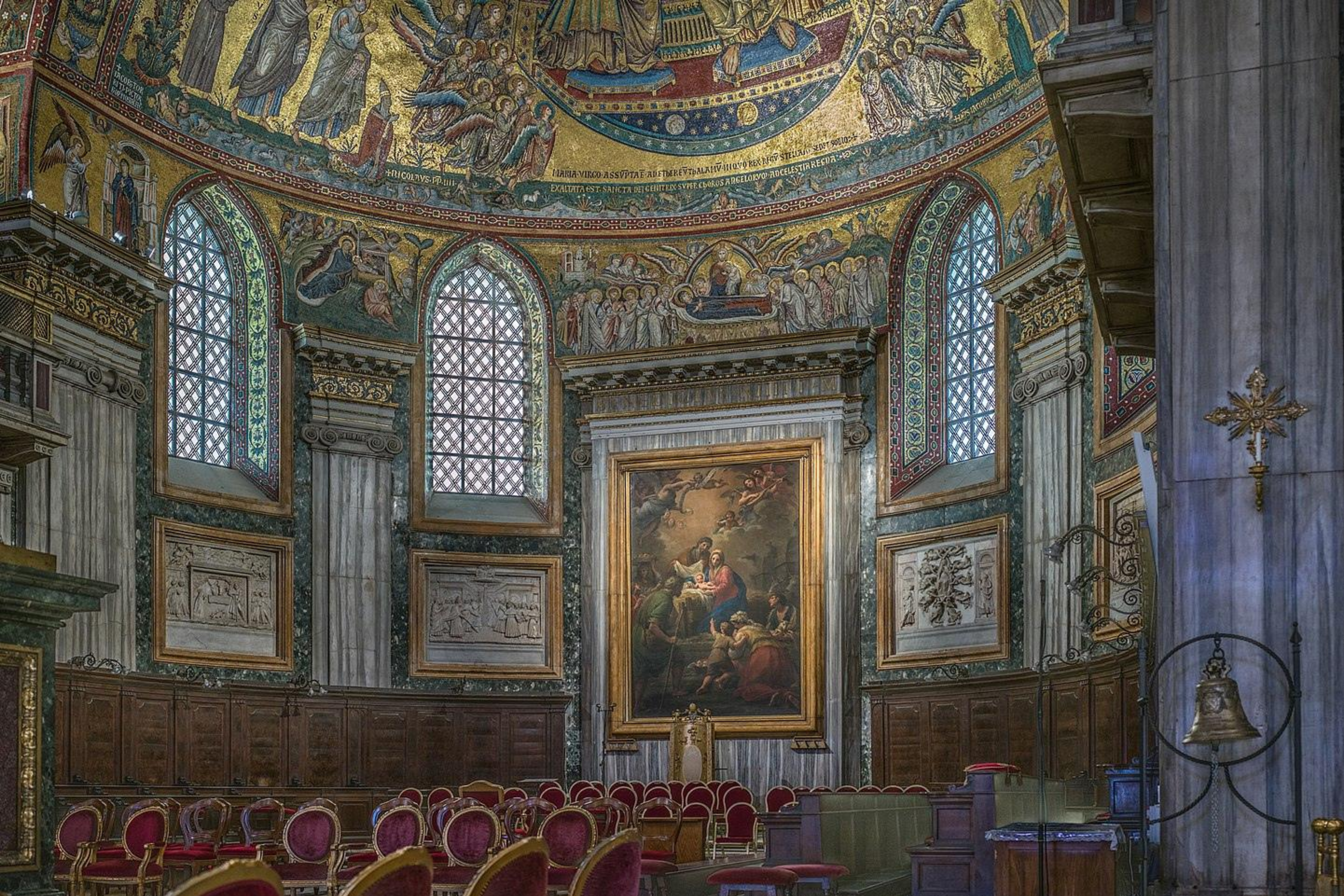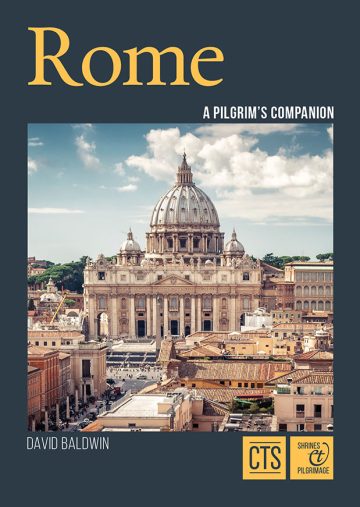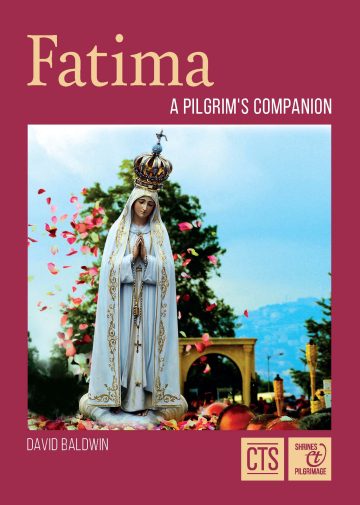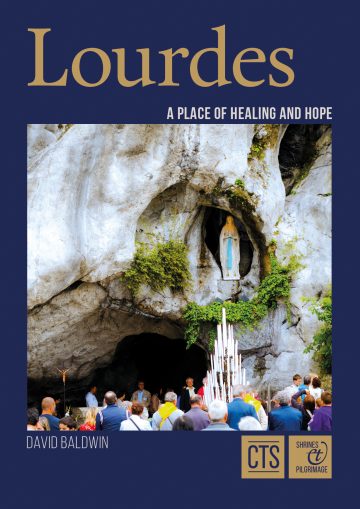This blog is extracted from Rome: A Pilgrim’s Companion by David Baldwin.
Devotees of Our Lady are completely spoilt for choice in Rome – there being upwards of sixty churches dedicated to her. The most prominent is St Mary Major, also known as the Church of the Snows, one of the four patriarchal basilicas of Rome. The legend of its conception and location comes from the tradition that a wealthy Roman citizen, praying to Our Lady to further grace his life, had a dream that he should build a church in her honour in the area where snow would fall that August day in the year 352. Thinking this highly unlikely, he nonetheless reported his dream to the Pope, Liberius, who with great surprise had experienced the same dream that night. On being told that snow had fallen that day, they went to the spot on the summit of the Esquiline Hill, and the Pope, with his crosier, scratched out in the snow the outline of a huge basilica that he envisaged being dedicated to Our Lady.
However, historical research reveals that the present basilica was probably not started before 420, possibly over the remains of any church built during Liberius’ time. Its conception and construction was linked to reinforce and proclaim Mary as Mother of God, as declared at the Council of Ephesus (431). The charm of the legend is not forgotten though – because on the 5 August every year a special Mass is celebrated in the Pauline chapel, in which, during the consecration, thousands of white petals fall from the ceiling.
I have in my mind’s eye an image of glittering gold as I looked up at the sumptuous and intricate detail of the gilded, Renaissance coffered ceiling, of a majestic procession of the forty Ionic pink marble columns leading to the high altar, the mosaics of Old Testament themes above each column, and on moving through, hardly daring to walk on the twelfth century Cosmati pavement of inlaid marble patterns. The whole centres-in on the handsome baldacchino of red porphyry and bronze, and accompanying confessio, and in the apse beyond, a graceful mosaic of the crowning of Our Lady as Queen of Heaven, and below it, other scenes from the life of Our Lady.
Pauline Chapel
In being selective, I concentrated my efforts on the gorgeous Pauline side chapel – the Chapel of the Snows. Above the altar is an ancient image of the Madonna, painted by an unknown Byzantine artist of apostolic times, but traditionally attributed to St Luke. Beneath it is the inscription ‘Salus populi Romani’, ‘Salvation of the Roman People’. One commentator, so taken by the beauty of this chapel, was moved to write, “Unless words were gems that would flame with many coloured lights upon the page, and thence throw a tremendous glimmer into the reader’s eyes, it were vain to attempt a description of this princely chapel”.
Prayer
Mary, Mother of hope, accompany us on our journey! Teach us to proclaim the living God; help us to bear witness to Jesus, the one Saviour; make us kindly towards our neighbours, welcoming to the needy, concerned for justice, impassioned builders of a more just world; intercede for us as we carry out your work in history, certain that the Father’s plan will be fulfilled.
(John Paul II, Ecclesia in Europa)






